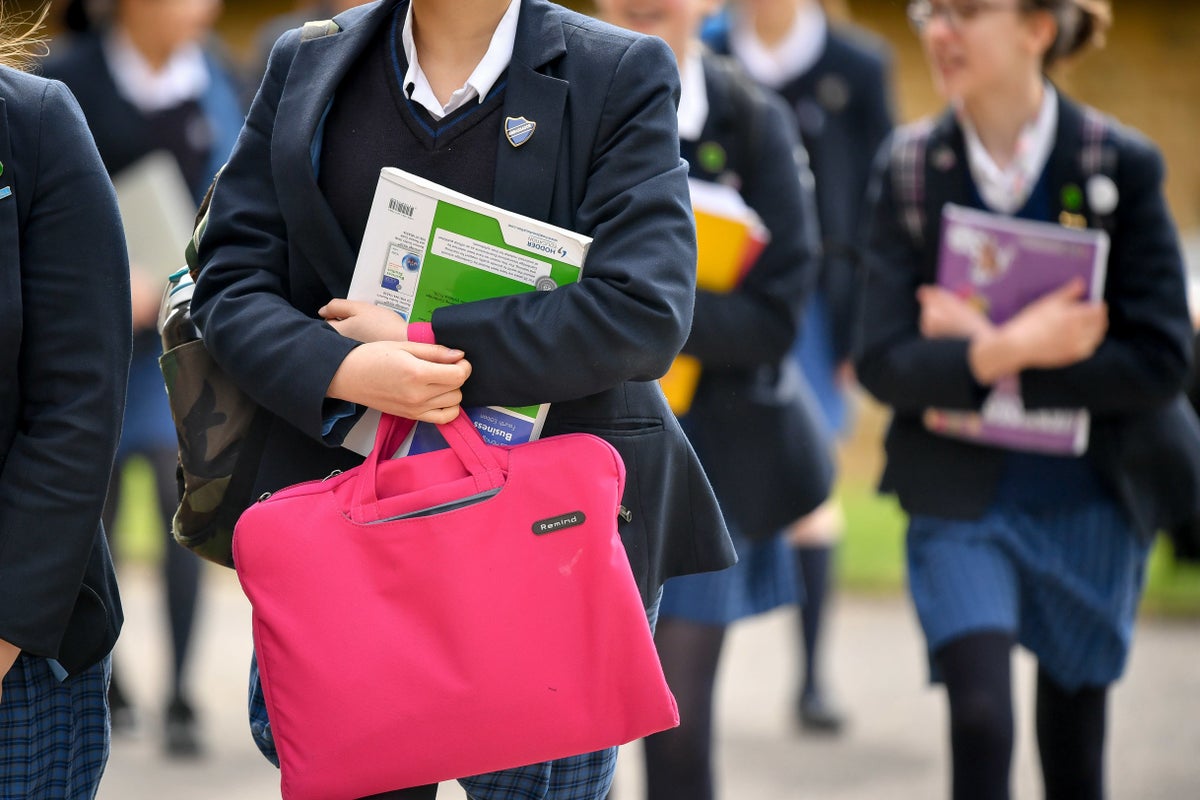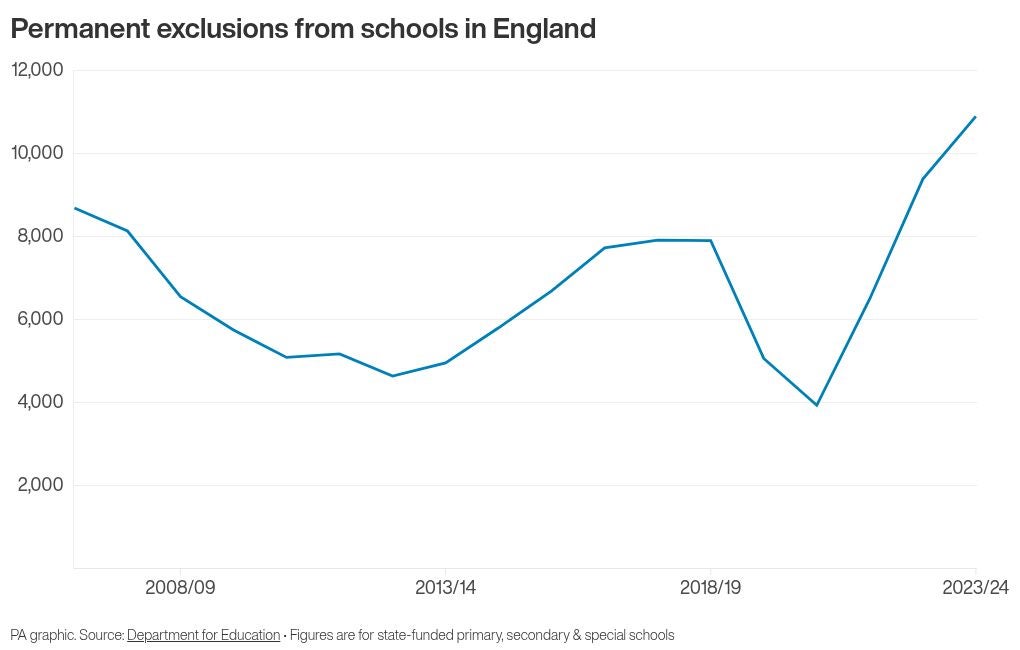
Suspensions and exclusions from schools in England have risen to a record high for recent times, Government figures show.
There were 954,952 suspensions in the 2023/24 academic year, compared with 786,961 in 2022/23 – an increase of more than a fifth (21%) in a year.
There were 10,885 permanent exclusions in 2023/24, compared with 9,376 the year before – a rise of 16%, according to the Department for Education (DfE) data.
The rise comes amid warnings of challenging behaviour in classrooms following the Covid-19 pandemic.
Suspensions – which are when a pupil is excluded from a school for a set period of time – in primary schools rose by nearly a quarter in a year.

Figures released on Thursday show that suspensions for pupils in state primary schools rose by 24%, from 84,264 in 2022/23 to 104,803 in 2023/24.
Meanwhile, suspensions for secondary school pupils rose by 21% in a year, from 685,930 to 829,896.
Persistent disruptive behaviour was the most common reason for sanctions, accounting for 51% of all reasons given for suspension and 39% for exclusion.
Suspensions and exclusions peaked in the 2023/24 autumn term, where there were 346,279 suspensions and 4,168 permanent exclusions in a single term.
The number of suspensions and exclusions in England is the highest since at least 2006/07, when the latest DfE data begins.
Pupils on free school meals and those with special educational needs and disabilities (Send) continue to see high levels of suspensions and permanent exclusions, the DfE said.
Education minister Stephen Morgan said: “Every moment in the classroom counts – but with almost one million suspensions in the 2023 academic year, the evidence is clear that this Government’s inheritance was classrooms in chaos, with swathes of the next generation cut off from the opportunity to get on in life.
“Through our plan for change, we’ve wasted no time in tackling the root causes of poor behaviour, including by providing access to mental health support in every school, making sure every child gets the fuel they need to learn through free breakfast clubs and expanding free school meals, and launching our new attendance and behaviour hubs which will directly support the 500 schools that need the most help.
“We’re also continuing to listen to parents as we reform the Send system, while already putting in place better and earlier support for speech and language needs, ADHD and autism and £740 million to encourage councils to create more specialist places in mainstream schools.”
Beth Prescott, education lead at the Centre for Social Justice (CSJ) think tank, said: “There is a crisis of bad behaviour disrupting classrooms.”
She added: “Government and schools have an important role to play, but our research shows that parents also need to up their game and take responsibility for their children’s behaviour in class.
“There has been a fundamental breakdown in the school-parent social contract.”
Carol Homden, chief executive of Coram charity, said: “Year on year the numbers of children excluded from school on a temporary and on a permanent basis continue to rise, but this year’s significant rise must be a wake-up call.”
She added: “This epidemic of exclusion must also be faced head on by the Government while addressing the current crisis in special educational needs and disability provision, in order to make our children’s right to a suitable education a reality.”
Paul Whiteman, general secretary at school leaders’ union NAHT, said: “Schools have a duty to provide a safe environment for all pupils and only use suspensions and exclusions when other options to ensure this have been exhausted.
“The reasons for disruptive behaviour often lie beyond the school gates and have their roots in wider challenges, including everything from poverty to access to support with special educational needs and mental ill-health.
“Schools work tirelessly to support pupils, but they alone cannot address the causes and symptoms of poor behaviour.
“They need back-up in the shape of additional investment in vital services like social care, children’s mental health, behaviour support teams, and special educational needs provision, which have been reduced or failed to keep up with demand over the last decade.”
Sophie Schmal, director of Chance UK charity, said: “The latest figures released today reveal a shocking picture, particularly for some of our youngest and most vulnerable children.
“When you have children as young as five and six years old being permanently excluded from school, then clearly something is going very wrong.
“Every day, we see children and families being let down by a system that is failing to support them early enough.”
Major autism breakthrough could revolutionise treatments and care
What disability benefit claimants need to know about Labour’s new welfare plans
Reform UK supports ‘one in, one out’ among its ranks, Commons leader claims
‘Serious blunder’ over Islamic State murder of Rochdale Imam
Channel crossings continue amid crunch talks over migrant deal







